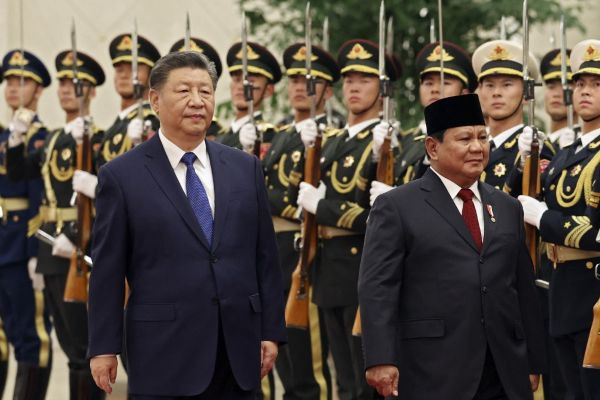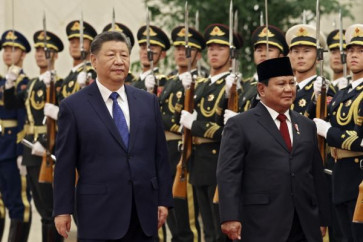Popular Reads
Top Results
Can't find what you're looking for?
View all search resultsPopular Reads
Top Results
Can't find what you're looking for?
View all search resultsIndonesia’s silent retreat from the South China Sea
Prabowo's administration has effectively left the dispute to the direct claimants rather than treating it as a regional issue.
Change text size
Gift Premium Articles
to Anyone
I
ndonesia's approach to the South China Sea dispute has undergone a noticeable shift, reflecting a growing disinterest in the issue. This change can be traced back to president Joko “Jokowi” Widodo's tenure, during which he consistently maintained that Indonesia has no territorial dispute with China in the South China Sea.
While efforts to finalize the Code of Conduct (CoC) through ASEAN multilateralism continue, they appear to be more of a diplomatic formality rather than a serious endeavor to establish a common understanding between ASEAN countries and China.
Domestically, Jokowi's policies on maritime issues have often been framed within a nationalist sentiment. His administration initially took an assertive stance on illegal fishing under the leadership of Susi Pudjiastuti, the former Marine Affairs and Fisheries minister. Her bold approach, including the controversial "seize and sink" policy against foreign vessels encroaching on Indonesian waters, signaled a strong maritime policy. Additionally, the decision to rename part of the South China Sea as the "North Natuna Sea" was seen as an attempt to reaffirm Indonesia’s sovereignty.
However, the true nature of Jokowi's maritime approach was eventually revealed. The removal of Susi from her ministerial position marked a turning point, signaling Indonesia’s shift in priorities from maritime assertiveness to economic cooperation. This transition was underscored by public disagreements within Jokowi’s cabinet, notably between vice president Jusuf Kalla and Luhut B. Pandjaitan, then-coordinating maritime and investment affairs minister, who viewed Susi’s hardline policy as potentially damaging to Indonesia’s relations with neighboring countries, including China.
Economic considerations have played a decisive role in shaping this new direction. China remains Indonesia’s largest trading partner and one of its biggest sources of foreign direct investment, alongside Singapore and Hong Kong. In the first half of 2022 alone, Indonesia’s exports to China increased by 34.2 percent, further solidifying economic ties. This growing economic interdependence has likely contributed to Indonesia’s reluctance to adopt an aggressive maritime posture against China.
The shift in Indonesia’s South China Sea policy has become even more evident under President Prabowo Subianto. His administration has effectively left the dispute to the direct claimants rather than treating it as a regional issue.
A recent joint statement between Indonesia and China has drawn sharp criticism, particularly regarding a clause on joint development in areas of "overlapping claims" in the South China Sea. This agreement suggests a further erosion of Indonesia’s commitment to ASEAN-led multilateralism, allowing individual member states to devise their own strategies for managing the dispute.



















